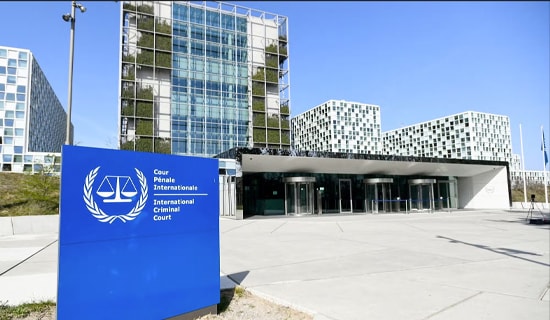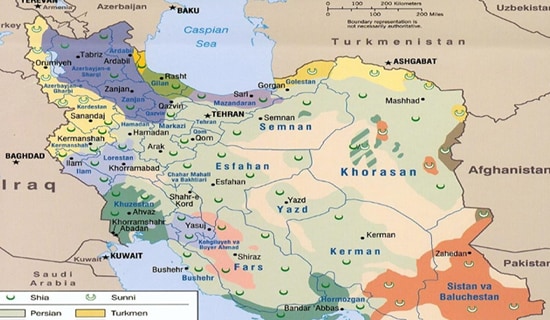Introduction
The second six-month extension of the talks between Iran and the P5+1, allowed for in the Geneva document of November 2013, will expire on November 24, 2014. As this deadline draws near, the pragmatic camp in Iran, headed by President Hassan Rohani's patron Hashemi Rafsanjani, which is directing the negotiations with the U.S. administration, is pressuring the Obama administration to reach a comprehensive agreement with Iran on the latter's terms. According to the pragmatic camp's view, the Obama administration desperately needs a substantial achievement to show for its term in office, and therefore this is the time to pressure it.
The pragmatic camp's pressure on the U.S. administration utilizes two strategies: on the one hand, enticing the U.S. administration to accept Iran's position in the negotiations in return for Iranian assistance in resolving other Middle East crises, especially the ISIS problem, and even hinting at a possibility of Iran-U.S. normalization; and on the other hand, threatening that a rejection of Tehran's position will result in Iran's ideological camp – which is hostile to the U.S. and to the detente with it – rising to power in the next elections.
Ali Younesi, Rohani's advisor on religious minorities, said on October 18, 2014 that the ISIS crisis, and Barack Obama's being "the weakest president the U.S. has ever had," provide Iran with a one-time opportunity to bend Washington to its will in the nuclear negotiations.
In a mid-October 2014 meeting with Swiss ambassador to Tehran Giuilio Hass, who, in the absence of a U.S. embassy in Iran, represents America's interests there, Rafsanjani conveyed a direct message to the U.S. He said that the nuclear policy he is leading provides the U.S. with an unprecedented opportunity to end the nuclear crisis with Iran, which will also help to resolve other regional and international crises.
Iranian pressure on the U.S. was also evident in Iranian Foreign Minister Mohammad Javad Zarif's September 17, 2014 statements at the Council on Foreign Relations in New York. Zarif warned Washington that, if the current pragmatic administration in Iran fails to attain a nuclear agreement with the West, the Iranian people will elect the stream that does not believe in rapprochement with the West.
The following are excerpts from the statements by these three senior officials in Iran's pragmatic camp:

Swiss Ambassador Giuilio Hass with Hashemi Rafsanjani in Tehran (Fars, Iran, October 15, 2014)
Rafsanjani: What Will The Western Leaders Tell Their People If They Fail To Strike A Deal With The Rohani Administration?
In his October 15 meeting with Swiss Ambassador Giuilio Hass, Rafsanjani said: "If the Western officials do not manage to resolve their problems [with Iran] during the term of the [current] capable government, what will they tell public opinion? In the present circumstances, political excuses and [capitulating to] the obstacles [created] by the Zionist lobby will deprive the Western countries of the best opportunity to solve most of the regional and even international problems with Iran's help." Responding to a comment by the Swiss ambassador that the U.S. is determined to reach an agreement with Iran, Rafsanjani stressed that the U.S. must back up its words with actions: "We understand America's internal problems and the pressures exerted by the extremists there, but in order to solve problems there is a need for more than a change in rhetoric. Declarations must be backed up with moves [on the ground]."[1]
FM Zarif: If We Fail To Reach An Agreement Now, The Iranian People Will Throw Us Out Of Office
Answering questions from the audience following his September 17 speech at the Council on Foreign Relations in New York, Foreign Minister Zarif said in response to a journalist who asked how the failure of the nuclear talks would impact Iran's foreign policy: "We [the current Iranian government] started a process with the aim of changing the foreign policy environment of the government of the country. Now if, in spite of our efforts to be accommodating, we fail, then the Iranian people have an opportunity to respond to our failure in about a year's time... [in] about 16-month's time, when we have the next parliamentary election. Last time around when we tried, we were accommodating to the international community in negotiating our nuclear deal – I'm talking about 2004 and 2005 – and then when our attempts at openness were rebuffed by the European Union and – because the European Union was not doing this alone and somebody sitting in the White House and in the State Department prevented any agreement, like some people who now do not want to see any agreement, no matter what the parameters are, at that time, people basically rewarded us for our failure by electing a different type of president to office in Iran, which went on for a good eight years and gave me early retirement."[2]
Presidential Advisor Younesi: We Must Exploit Obama's Weakness To Force Him To Meet Our Demands
Rohani's advisor on religious minorities, 'Ali Younesi, said to the Fars news agency on October 18, 2014: "I am not so optimistic about the nuclear negotiations, but both sides do want it to yield results. The Americans want this more than other countries. Some ostensibly friendly countries, like Russia and China, do not want it to yield results at all... [but] America does, because, if Obama fails to achieve this, he will have no achievements whatsoever. He wants to achieve results, so he can say, 'I kept Iran from becoming nuclear during my eight years [in office].' That will be a huge achievement for Obama. For this reason, he unjustifiably exaggerates the danger of a nuclear Iran, so that, if we reach an agreement, he can say, 'I have scored a great achievement.'
"Obama is the weakest president the U.S. has ever had, because he has suffered humiliating defeat in this region, and his term in office saw the coming of the Islamic awakening that dealt the Americans the greatest defeat. It is during Obama's term in office that terrorism spread to the greatest extent. During these eight years, America suffered immense defeat, and that is why he wants to reach an agreement [with Iran]. But he is very influenced by the Congress and the Zionist lobby...
"ISIS poses a great danger to the Islamic world and to the world at large. We must minimize this danger and force the Americans to meet our demands in the nuclear agreement, in a manner that guarantees the interests of the Islamic Republic. If this does not happen during Obama's term, who knows when [such an opportunity] will come again."[3]
*A. Savyon is Director of MEMRI's Iranian Media Project; Y. Mansharof is a research fellow at MEMRI.
Endnotes:








